Many people are kinaesthetic learners; they learn best by touching and doing, as opposed to reading or writing.
This is particularly relevant amongst those of us interested in agriculture and horticulture.
With this learning type in mind, Teagasc provides a range of hands on education and training programmes, at their colleges nationwide.
Study a level five certificate in agriculture at one of the six Teagasc-approved agricultural colleges across the country.
Whilst each of the colleges are unique, they all provide a practical educational experience and a QQI approved level five qualification, which will allow students to progress to a level six course, or embark on a successful career in agriculture.
Applications are now open for the 2021 level five certificate in agriculture course. Apply directly to Teagasc on www.teagasc.ie
Teagasc offers full-time programmes in agriculture through:
Ballyhaise College, Co Cavan. Clonakilty College, Co Cork. Kildalton College, Co Kilkenny.Gurteen College, Co Tipperary. Mountbellew Agricultural College, Co Galway. Salesian Agricultural College, Co Limerick.Gurteen Agricultural College
Gurteen Agricultural College in Co Tipperary caters for enthusiastic students, with all levels of farm experience and academic achievement.
Principal of Gurteen Agricultural College Jon Parry, gives some solid career and educational advice to agricultural enthusiasts seeking to progress their knowledge of the sector.

Jon Parry, principal of Gurteen Agricultural College.
“Although a lot of my experience to date has been in the UK, rather than in Ireland, I think this is true for both jurisdictions. There are really good jobs in the agricultural industry and I genuinely mean that”, he continues,
“Those jobs can be on farm, or off farm. Nowadays, people are willing to pay for good staff. They value the ones who are skilled and reliable. So getting some kind of qualification in the agricultural sector almost guarantees you a job. And whilst you might start out sheering sheep, or driving a tractor all day, you are not committed to that for life. Qualifications are not the be-all-end-all; it’s hugely about work ethic and personality, but they give you a step up the ladder. The opportunities are worldwide and endless, once you are dedicated and skilled.”
Gurteen Agricultural College is located in the middle of a mixed working farm, on which students spend much of their time, learning in a practical way, Jon explains,
“Gurteen farm is not a demonstration farm. It is a real commercial enterprise with tillage, sheep, sucklers and dairy, so students get a realistic and varied experience.”
Touching on the blended learning environment Gurteen College offers to students, he continues.
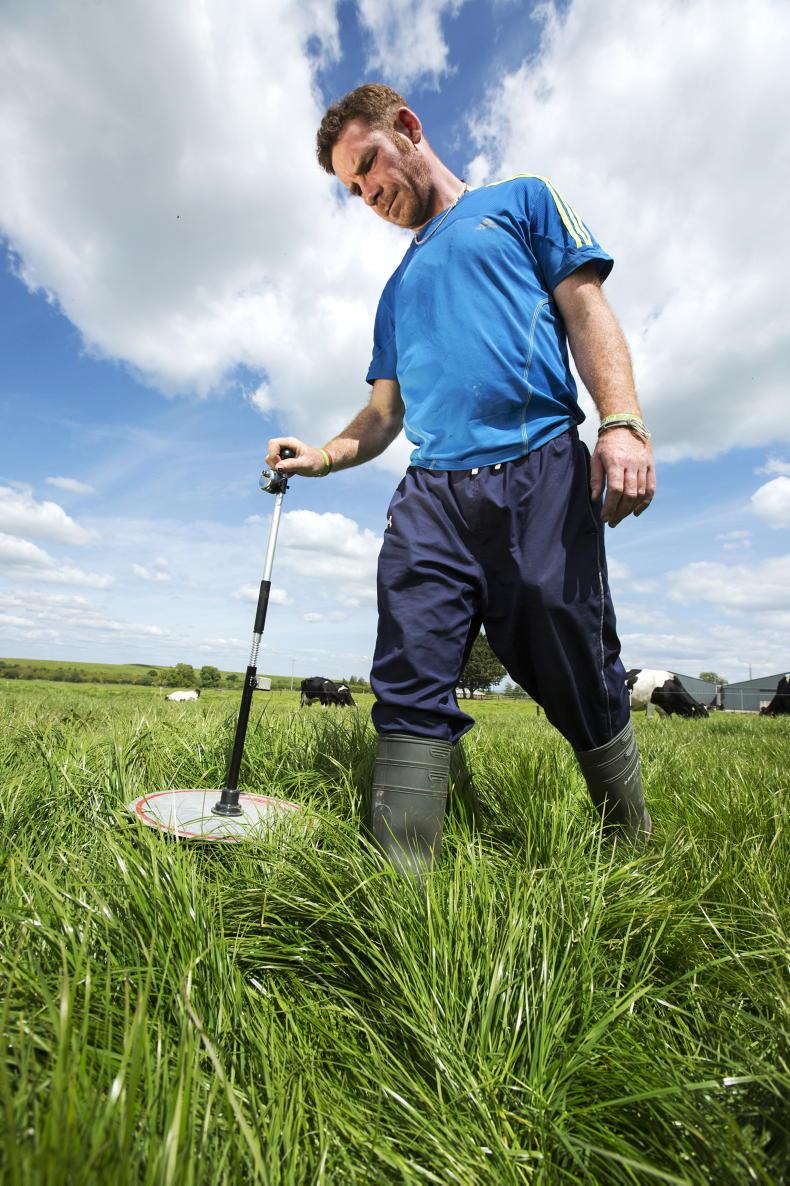
Thomas Broderick measuring grass in a paddock as part of his training at Gurteen Agricultural College. \ Donal O'Leary
“Book work is important for our student’s education, of course, but so too is hands on learning. And across all Teagasc based colleges, whether you are looking at disease control in sheep or cattle, most of the learning is going to be done in the shed, looking at the animals and discussing the potential diseases and prevention methods. This really helps students to recognise and remember the issue, when dealing with it on their home farm or elsewhere.”
All Teagasc-based courses have a practical learning period (PLP), during which students gain work experience on approved commercial farms Jon explains,
“During PLP you get to focus on the area of agriculture that you are really interested in. We work with students to find a really good commercial farm that suits their preferences.
“And to ensure you get the best experience, we send students out at their preferred sector’s busiest time of year. For example, students interested in dairy generally go out at the end of January, whereas those with a keen interest in tillage go out later in spring.”
Having spent over 20 years of his career in agricultural education, Jon understands that not every student has been awarded hundreds of points in their leaving certificate; but firmly believes in every student’s potential to flourish in a learning environment that is tailored to their specific interest.
“We are very proud at Gurteen to have such a strong tradition of school leavers coming to us, who after completing a two year level six course say, ‘Actually, now I do want get my level eight degree.’
“But equally, there are many people who graduated from Gurteen a few years back and are now successfully milking their own cows, or have a beef finishing unit.”
“So, although you might feel now that you’re struggling with maths, not enjoying school and just want to drive tractors; a course at Gurteen Ag College might change your perspective. Once you start doing those fertiliser calculations, you realise you are perfectly capable and that’s because all of the education is about a topic that you are really interested in” he finishes.

The National Botanic Gardens School of horticulture, Glasnevin, Dublin.
The Level 5 Teagasc-led certificate in horticulture equips graduates for a broad spectrum of higher education and career opportunities in the world of horticulture.
The course are currently provided at two Teagasc horticultural colleges:
College of Amenity Horticulture, National Botanic Gardens, Glasnevin, Dublin 9.Teagasc Kildalton College, Piltown, Co Kilkenny.These programmes are validated by QQI and once completed allow students to progress to a Level 6 advanced certificate in horticulture.
Applications are now open for the 2021 Level 5 certificate in horticulture course. Apply directly to Teagasc on www.teagasc.ie
Learn more about the Level 5 certificate in horticulture through the virtual “Try Hort Q&A” event taking place online this Friday 29 January 2021 at 12.30pm. All details for the event are on the “Teagasc College of Amenity Horticulture, National Botanic Gardens” Facebook page.
The National Botanic Gardens
School of Horticulture
Deirdre Walsh, assistant principal at the Teagasc College of Amenity Horticulture, National Botanic Gardens tells us all about her scenic and successful journey through horticultural education.
“I come from a dairy farm in south Tipperary but I always had more of an interest in the plants than the cows. My twin sister went to UCD to study agriculture.

Deirdre Walsh, assistant principal at the Teagasc led National Botanic Gardens school of horticulture, Dublin.
“So, she went ag and I went hort. After my Leaving Cert, I first went off to Dublin to start a business degree and absolutely hated it. I came home and went to Kildalton College instead to do a course in horticulture and I loved it. I think it was the practical nature of the course that I enjoyed most. I went on then to do a degree in UCD, in landscape architecture and finally, in 2020 I graduated with a postgraduate diploma in teaching in further education from WIT,” she tells Irish Country Living.
Having taken the back road through education, Deirdre is delighted to see so many of her past and present level five horticultural students also advance their education.
“You could say that I have taken the scenic route through education, which I see a number of our students do now. And that it is great – people are enjoying their course so much that they want to learn more. It shows that the Teagasc land-based education is obviously working.
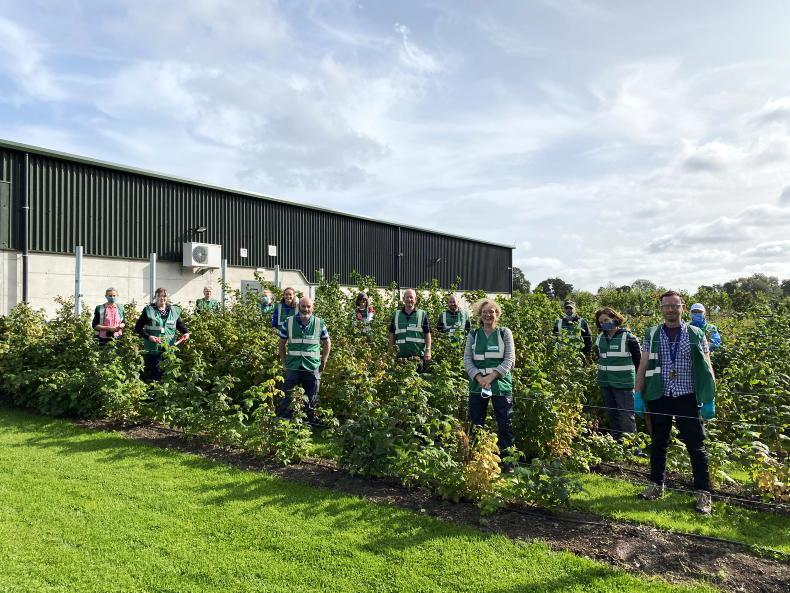
Students from the National Botanic Gardens school of horticulture enjoying a socially distant field trip recently.
“It’s important to remember that whether or not you want to go down the CAO route of applying for Level 7 and 8 courses, there are educational opportunities for you.”
Contesting any whispers that say a Level 5 certificate is an easy feat, Deirdre continues,
“A Level 5 certificate in horticulture is no easy task. Some people might think it is very straightforward, but there is a lot of science involved. It’s very demanding of a person’s time and energy and is a huge achievement.
The level five course gives student’s a broad taster of what horticulture is all about; covering everything from landscaping, to sports turf and garden design. Self-sufficiency, sustainability and traceability are topics that pop up in every single class I teach now.
The Level 5 course also exposes students to PLP, which helps you network in the industry and really boosts your confidence.
The course is open to all Leaving Cert students and beyond. Anybody who thinks they would like to work in any aspect of the horticultural industry would benefit from this course” she finishes.
Read more
Bord Bia Talent Academy international graduate programme deadline approaches
Educate yourself on at the National Dairy Council's 2021 Virtual HealthFest
Many people are kinaesthetic learners; they learn best by touching and doing, as opposed to reading or writing.
This is particularly relevant amongst those of us interested in agriculture and horticulture.
With this learning type in mind, Teagasc provides a range of hands on education and training programmes, at their colleges nationwide.
Study a level five certificate in agriculture at one of the six Teagasc-approved agricultural colleges across the country.
Whilst each of the colleges are unique, they all provide a practical educational experience and a QQI approved level five qualification, which will allow students to progress to a level six course, or embark on a successful career in agriculture.
Applications are now open for the 2021 level five certificate in agriculture course. Apply directly to Teagasc on www.teagasc.ie
Teagasc offers full-time programmes in agriculture through:
Ballyhaise College, Co Cavan. Clonakilty College, Co Cork. Kildalton College, Co Kilkenny.Gurteen College, Co Tipperary. Mountbellew Agricultural College, Co Galway. Salesian Agricultural College, Co Limerick.Gurteen Agricultural College
Gurteen Agricultural College in Co Tipperary caters for enthusiastic students, with all levels of farm experience and academic achievement.
Principal of Gurteen Agricultural College Jon Parry, gives some solid career and educational advice to agricultural enthusiasts seeking to progress their knowledge of the sector.

Jon Parry, principal of Gurteen Agricultural College.
“Although a lot of my experience to date has been in the UK, rather than in Ireland, I think this is true for both jurisdictions. There are really good jobs in the agricultural industry and I genuinely mean that”, he continues,
“Those jobs can be on farm, or off farm. Nowadays, people are willing to pay for good staff. They value the ones who are skilled and reliable. So getting some kind of qualification in the agricultural sector almost guarantees you a job. And whilst you might start out sheering sheep, or driving a tractor all day, you are not committed to that for life. Qualifications are not the be-all-end-all; it’s hugely about work ethic and personality, but they give you a step up the ladder. The opportunities are worldwide and endless, once you are dedicated and skilled.”
Gurteen Agricultural College is located in the middle of a mixed working farm, on which students spend much of their time, learning in a practical way, Jon explains,
“Gurteen farm is not a demonstration farm. It is a real commercial enterprise with tillage, sheep, sucklers and dairy, so students get a realistic and varied experience.”
Touching on the blended learning environment Gurteen College offers to students, he continues.

Thomas Broderick measuring grass in a paddock as part of his training at Gurteen Agricultural College. \ Donal O'Leary
“Book work is important for our student’s education, of course, but so too is hands on learning. And across all Teagasc based colleges, whether you are looking at disease control in sheep or cattle, most of the learning is going to be done in the shed, looking at the animals and discussing the potential diseases and prevention methods. This really helps students to recognise and remember the issue, when dealing with it on their home farm or elsewhere.”
All Teagasc-based courses have a practical learning period (PLP), during which students gain work experience on approved commercial farms Jon explains,
“During PLP you get to focus on the area of agriculture that you are really interested in. We work with students to find a really good commercial farm that suits their preferences.
“And to ensure you get the best experience, we send students out at their preferred sector’s busiest time of year. For example, students interested in dairy generally go out at the end of January, whereas those with a keen interest in tillage go out later in spring.”
Having spent over 20 years of his career in agricultural education, Jon understands that not every student has been awarded hundreds of points in their leaving certificate; but firmly believes in every student’s potential to flourish in a learning environment that is tailored to their specific interest.
“We are very proud at Gurteen to have such a strong tradition of school leavers coming to us, who after completing a two year level six course say, ‘Actually, now I do want get my level eight degree.’
“But equally, there are many people who graduated from Gurteen a few years back and are now successfully milking their own cows, or have a beef finishing unit.”
“So, although you might feel now that you’re struggling with maths, not enjoying school and just want to drive tractors; a course at Gurteen Ag College might change your perspective. Once you start doing those fertiliser calculations, you realise you are perfectly capable and that’s because all of the education is about a topic that you are really interested in” he finishes.

The National Botanic Gardens School of horticulture, Glasnevin, Dublin.
The Level 5 Teagasc-led certificate in horticulture equips graduates for a broad spectrum of higher education and career opportunities in the world of horticulture.
The course are currently provided at two Teagasc horticultural colleges:
College of Amenity Horticulture, National Botanic Gardens, Glasnevin, Dublin 9.Teagasc Kildalton College, Piltown, Co Kilkenny.These programmes are validated by QQI and once completed allow students to progress to a Level 6 advanced certificate in horticulture.
Applications are now open for the 2021 Level 5 certificate in horticulture course. Apply directly to Teagasc on www.teagasc.ie
Learn more about the Level 5 certificate in horticulture through the virtual “Try Hort Q&A” event taking place online this Friday 29 January 2021 at 12.30pm. All details for the event are on the “Teagasc College of Amenity Horticulture, National Botanic Gardens” Facebook page.
The National Botanic Gardens
School of Horticulture
Deirdre Walsh, assistant principal at the Teagasc College of Amenity Horticulture, National Botanic Gardens tells us all about her scenic and successful journey through horticultural education.
“I come from a dairy farm in south Tipperary but I always had more of an interest in the plants than the cows. My twin sister went to UCD to study agriculture.

Deirdre Walsh, assistant principal at the Teagasc led National Botanic Gardens school of horticulture, Dublin.
“So, she went ag and I went hort. After my Leaving Cert, I first went off to Dublin to start a business degree and absolutely hated it. I came home and went to Kildalton College instead to do a course in horticulture and I loved it. I think it was the practical nature of the course that I enjoyed most. I went on then to do a degree in UCD, in landscape architecture and finally, in 2020 I graduated with a postgraduate diploma in teaching in further education from WIT,” she tells Irish Country Living.
Having taken the back road through education, Deirdre is delighted to see so many of her past and present level five horticultural students also advance their education.
“You could say that I have taken the scenic route through education, which I see a number of our students do now. And that it is great – people are enjoying their course so much that they want to learn more. It shows that the Teagasc land-based education is obviously working.

Students from the National Botanic Gardens school of horticulture enjoying a socially distant field trip recently.
“It’s important to remember that whether or not you want to go down the CAO route of applying for Level 7 and 8 courses, there are educational opportunities for you.”
Contesting any whispers that say a Level 5 certificate is an easy feat, Deirdre continues,
“A Level 5 certificate in horticulture is no easy task. Some people might think it is very straightforward, but there is a lot of science involved. It’s very demanding of a person’s time and energy and is a huge achievement.
The level five course gives student’s a broad taster of what horticulture is all about; covering everything from landscaping, to sports turf and garden design. Self-sufficiency, sustainability and traceability are topics that pop up in every single class I teach now.
The Level 5 course also exposes students to PLP, which helps you network in the industry and really boosts your confidence.
The course is open to all Leaving Cert students and beyond. Anybody who thinks they would like to work in any aspect of the horticultural industry would benefit from this course” she finishes.
Read more
Bord Bia Talent Academy international graduate programme deadline approaches
Educate yourself on at the National Dairy Council's 2021 Virtual HealthFest









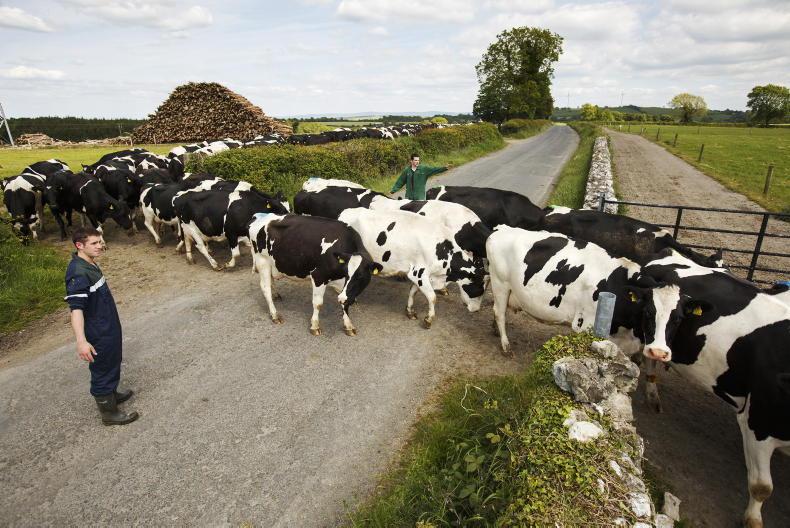


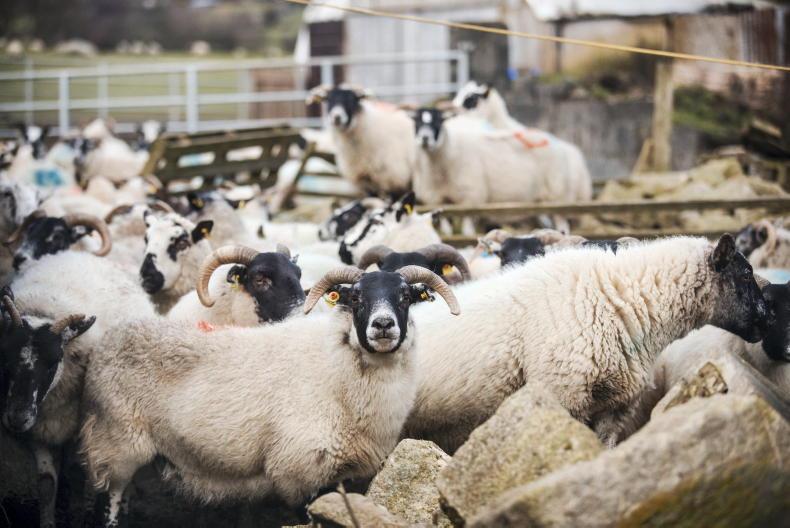
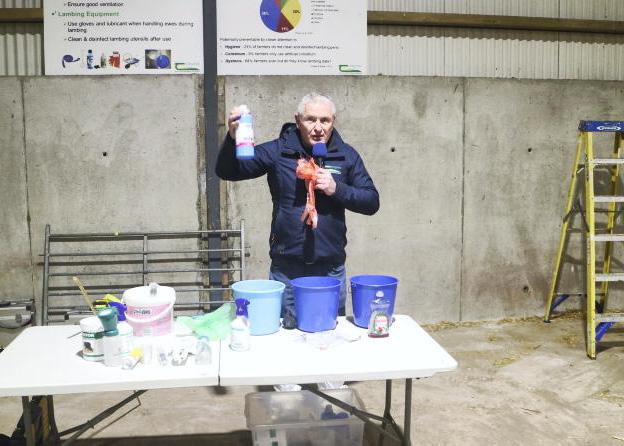
SHARING OPTIONS